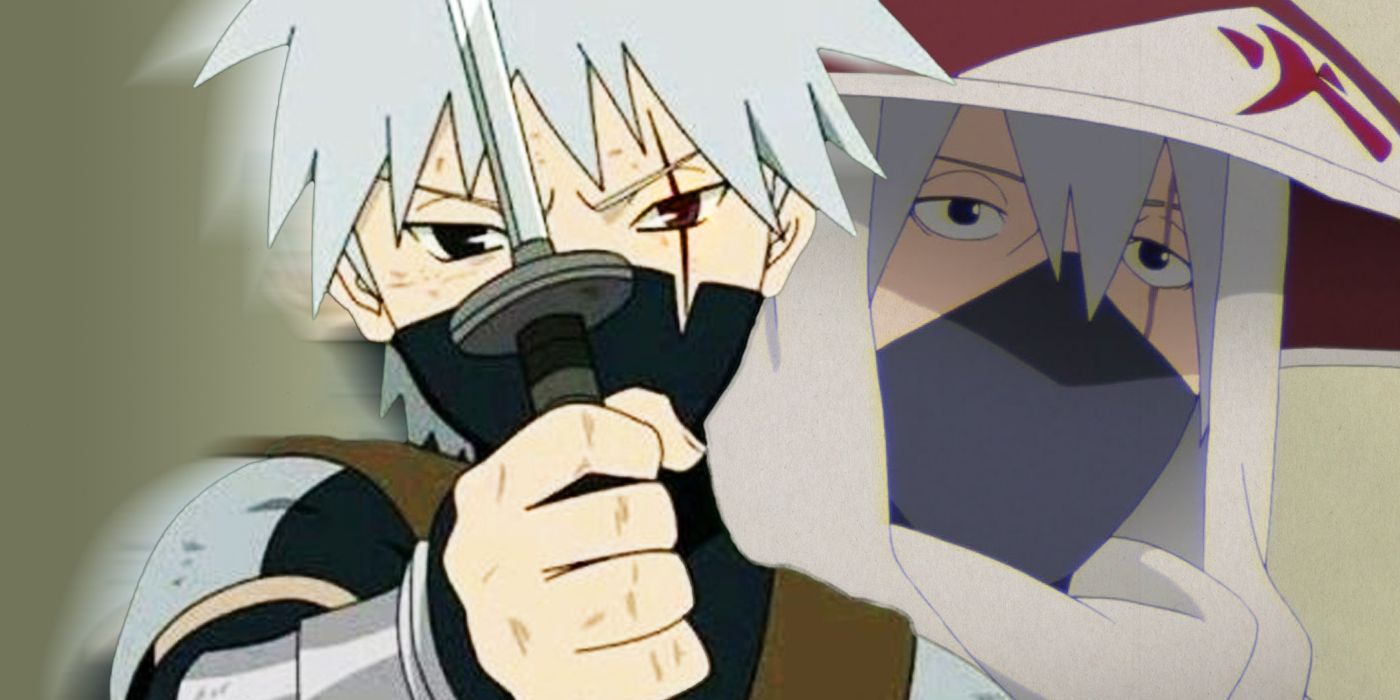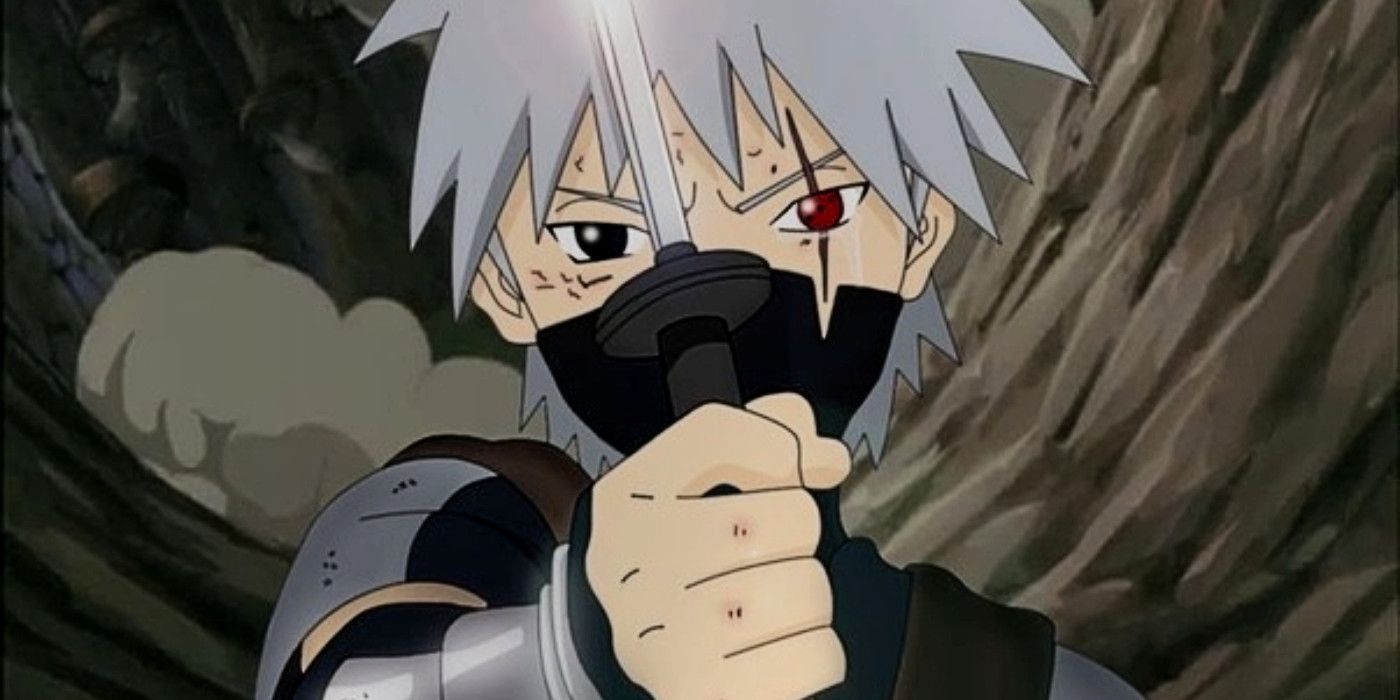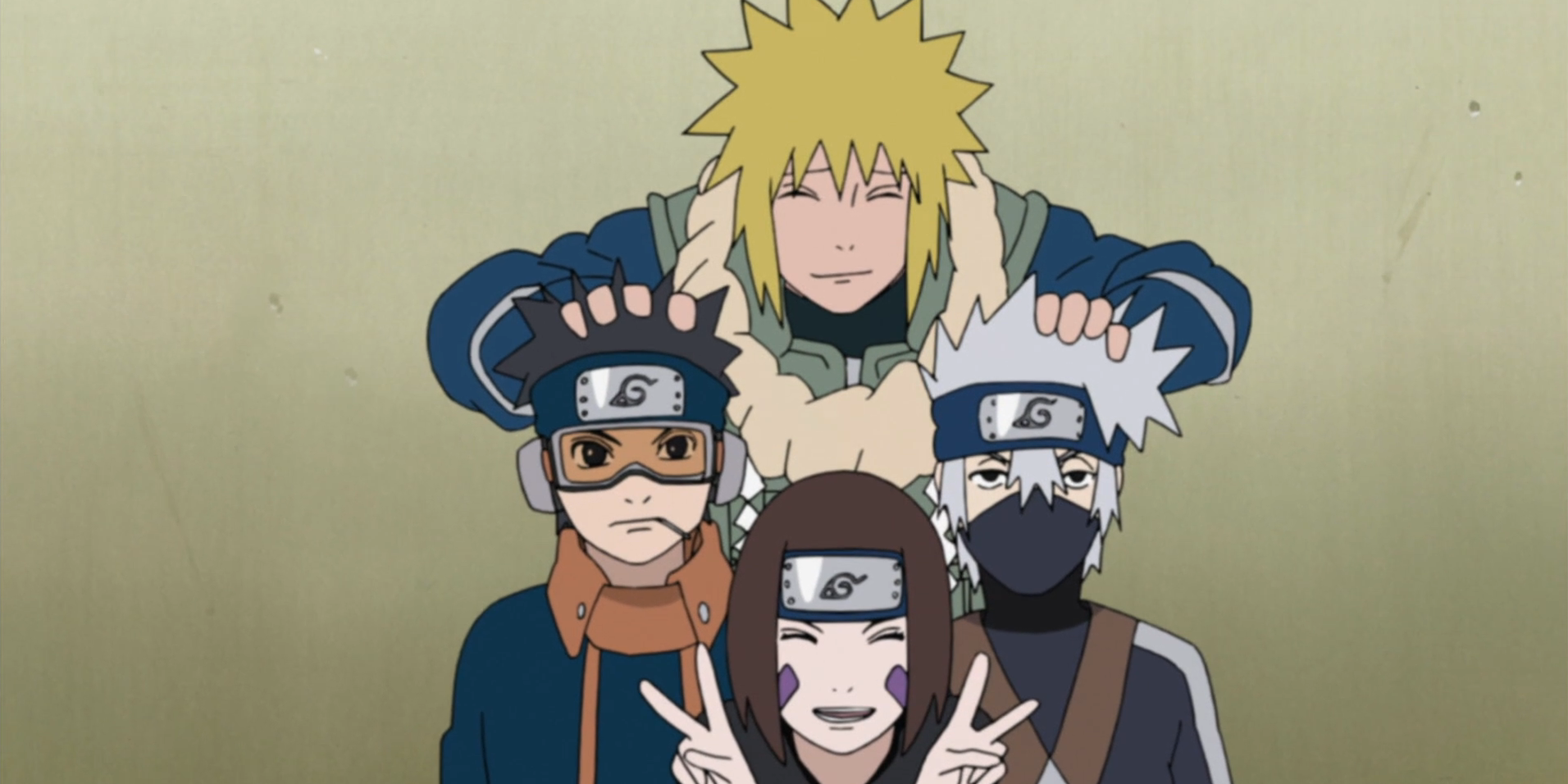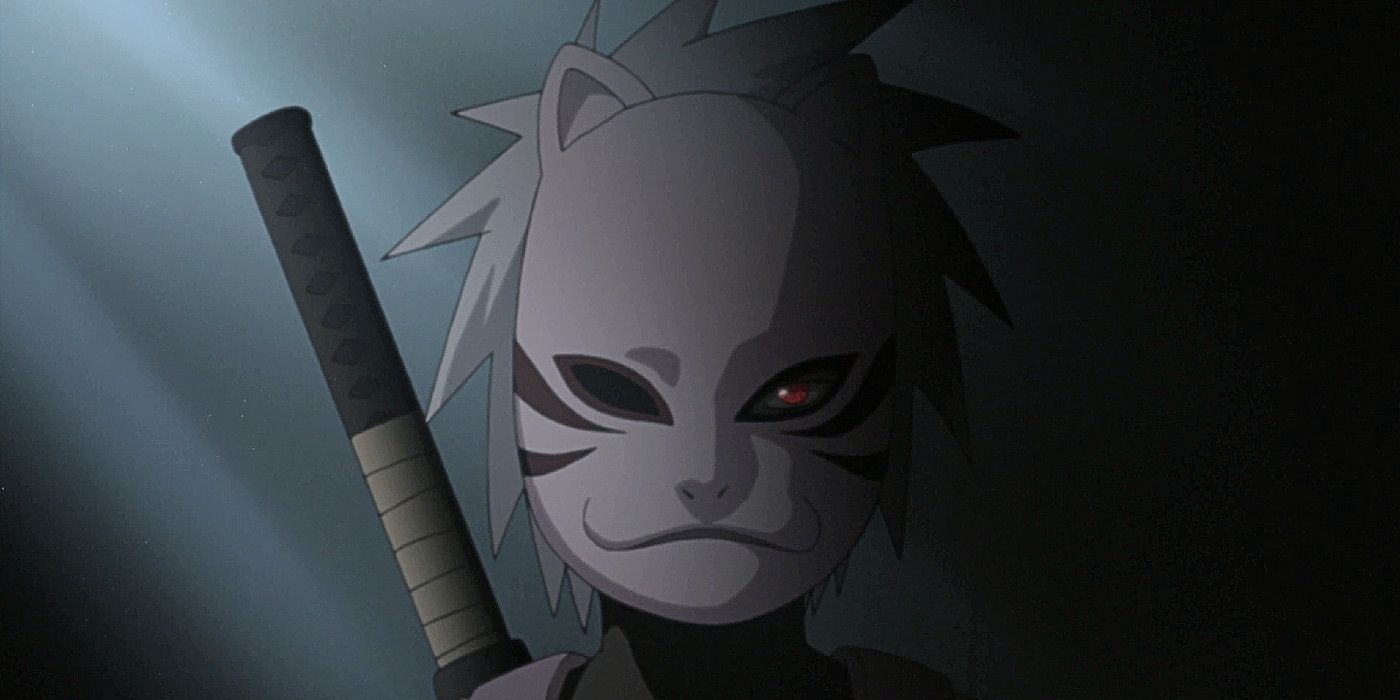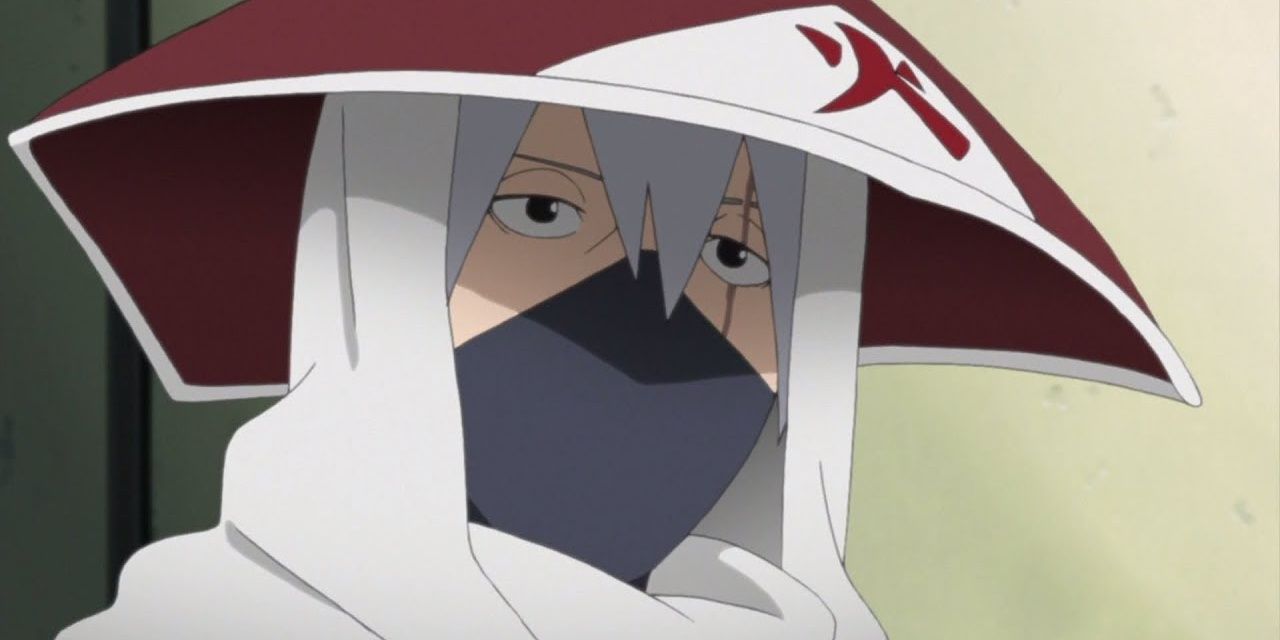WARNING: The following contains discussion of self-harm and suicide.
Classic anime villains typically have two things in common: a tragic backstory and access to incredible power. A tragic origin story often breaks a character both mentally and physically, justifying the villain's descent into darkness. Meanwhile, wielding great power gives a villain the opportunity to execute their plans and oppose the heroes.
Kakashi Hatake from Naruto meets both criteria, spending his early years as a powerful child soldier who witnesses death on a regular basis. Despite his tragic upbringing, Kakashi overcomes his trauma and learns from his past mistakes to prevent others from living the same life that was forced upon him. He had all the makings of a classic villain. Instead, he became one of the most heroic and admired anime characters of all time.
Kakashi Hatake: A Child Soldier in the Third Great Ninja War
Kakashi spends his early childhood being praised by his classmates, teachers, and even the Third Hokage for his unrivaled abilities at a young age. He was at the top of his class, becoming a chunin at six years old. Being widely acknowledged and respected for his abilities, Might Guy chooses Kakashi as his eternal rival because he wants to compete with the best of the best, even though Kakashi beats him with minimal effort every time. Even Obito, who dislikes him at the time, admits Kakashi inherited impressive skills from his father. Like Kakashi in Naruto, many anime villains are born with incredible power that is exploited by others, later creating resentment and trust issues.
Given the violent and desperate times of war, Kakashi is forced to defend the Land of Fire by serving in the Third Great Ninja War as a child. The Hidden Leaf had no choice but to use any capable shinobi in their war efforts, and Kakashi's skills were in great demand. He's promoted to jōnin at only 12 years old, receiving the heavy responsibility of leading his teammates while serving on Team Minato. During the war effort, Kakashi is forced to kill and watch countless comrades fall. The trauma of warfare he endured at a young age would've been enough to warp his mind and adopt a villainous ideology.
Kakashi Suffers Great Loss
Kakashi endured unfathomable loss at a young age, with his mother's tragic death and his father's suicide occurring soon after. His father was a famous and powerful shinobi known as "White Fang" but took his own life after suffering constant ridicule in the village for choosing to save his teammates over successfully completing a mission. With his parents gone, Kakashi grows up in an empty house by himself, where he still announces his arrival and departure even though there's no one to hear him. He grows accustomed to the pain of isolation, never using it as an excuse for self-pity like many villains have in the past.
After witnessing his father's pain, Kakashi makes a strict rule to put the mission above his teammates' lives -- a sentiment Obito beats out of him later in Naruto when Rin gets kidnapped by the enemy. Had Kakashi continued to hold this idea, he may have grown into a sociopathic villain who doesn't value the lives of others. He suffers the "death" of his teammate during the first mission he's in charge of, where Obito sacrifices himself and gifts his left Sharingan to Kakashi. He also witnesses Rin's death soon after, when she throws herself onto Kakashi's chidori so she couldn't be used as a jinchūriki weapon of mass destruction against the Hidden Leaf.
In a heartbreaking conclusion to his former team, Kakashi loses his sensei, Minato Namikaze, who is the Fourth Hokage and Naruto's father, after Minato sacrifices himself to protect the Hidden Leaf from the Nine Tails. Kakashi also loses Kushina, Minato's wife, at the same time when he was supposed to be personally guarding her, and blames himself for what happened. The horror he witnesses first-hand and the guilt he carries is enough to justify a psychological breakdown. But unlike many anime villains, Naruto's Kakashi doesn't become embittered by the losses he endures. He doesn't seek revenge for his fallen comrades but instead honors their legacy and sacrifice by continuing their fight for peace in their place.
Kakashi: Serving in the ANBU Black Ops
After the deaths of Obito and Rin, Kakashi becomes withdrawn and detached around the village, concerning his classmates. With the circumstances surrounding his teammates' deaths, Kakashi feels responsible for their demise, causing him to have nightmares where he wakes up crying and washing his hands of blood that isn't there. Kakashi struggles to complete missions or use his signature chidori, which causes him to have flashbacks of his deceased teammates and relive their deaths. At this time, Minato is named the Fourth Hokage and grows concerned for Kakashi after he suffers PTSD and panic attacks on his recent missions. Minato appoints Kakashi to the ANBU shortly after becoming Hokage, believing he requires guidance and purpose to get over their teammates' deaths.
He joins the Hidden Leaf's elite task force at only 13, where he is forced to kill and do the village's dirty work. Kakashi becomes increasingly ruthless on his missions in the ANBU, driven to kill as many enemies as possible on his own. His fellow ANBU complains about his merciless tactics -- not leaving anyone alive to gather intel from. Kakashi's questionable methods could be interpreted as bloodlust, killing to make up for the death of his loved ones. Had he staying on this trajectory, Kakashi would've eventually developed into a villain in Naruto.
Team 7 and the Hidden Leaf's Guiding Hero
Kakashi doesn't begin to overcome his troubled past in Naruto until he's appointed to lead Team 7, which he's originally against because he doesn't believe he's capable of teaching. He offers them knowledge from lessons he learned the hard way, starting off with the number one rule he learned from Obito: "Those who break the rules are scum, but those who abandon their friends are worse than scum." Kakashi acts as a moral compass throughout the series, guiding Naruto to become a great shinobi in Minato's place. He takes pride in Naruto, Sakura, and Sasuke when they work together and successfully complete missions, witnessing their growth first-hand. When Kakashi later fails to stop Sasuke from leaving the Hidden Leaf and their team, he blames himself but bottles it up so he can be there for Naruto and Sakura.
While he's both famous and feared throughout the entire shinobi world as "Kakashi the Copy Ninja" and "Kakashi of the Sharingan," he uses his power and wisdom for good. Kakashi plays a major role in bringing together the Five Kage and the Allied Shinobi Forces to protect the world's future from Madara and Kaguya in the Fourth Great Ninja War. While Kakashi has the mental fortitude to continue fighting for peace, Obito's secret identity proves how close Kakashi was to becoming a villain, as the pair experience similar trauma but respond in vastly different ways. During the war, they finally reunite and reconcile once Kakashi teaches Obito how to overcome their past demons and work together to bring down the Infinite Tsukuyomi.
Kakashi's power, diplomacy, and reputation are so widely respected that he's chosen as the Sixth Hokage against his will. He is recognized and celebrated not only in Konoha but throughout the shinobi world. Instead of pursuing vengeance against a cruel and unfair world in Naruto, Kakashi never stops fighting to achieve world peace so others won't have to suffer the same way he did. This personal motivation is finally revealed in Boruto, where Kakashi expresses happiness and relief that modern-day children can enjoy the luxury of peace and preserve their childhood innocence.
For more information on the warning signs and prevention of suicide, click here. If you or someone you know is in emotional distress or considering suicide, call the National Suicide Prevention Lifeline at 1-800-273-TALK (8255). If you live outside the U.S., click here for a list of international hotlines.

